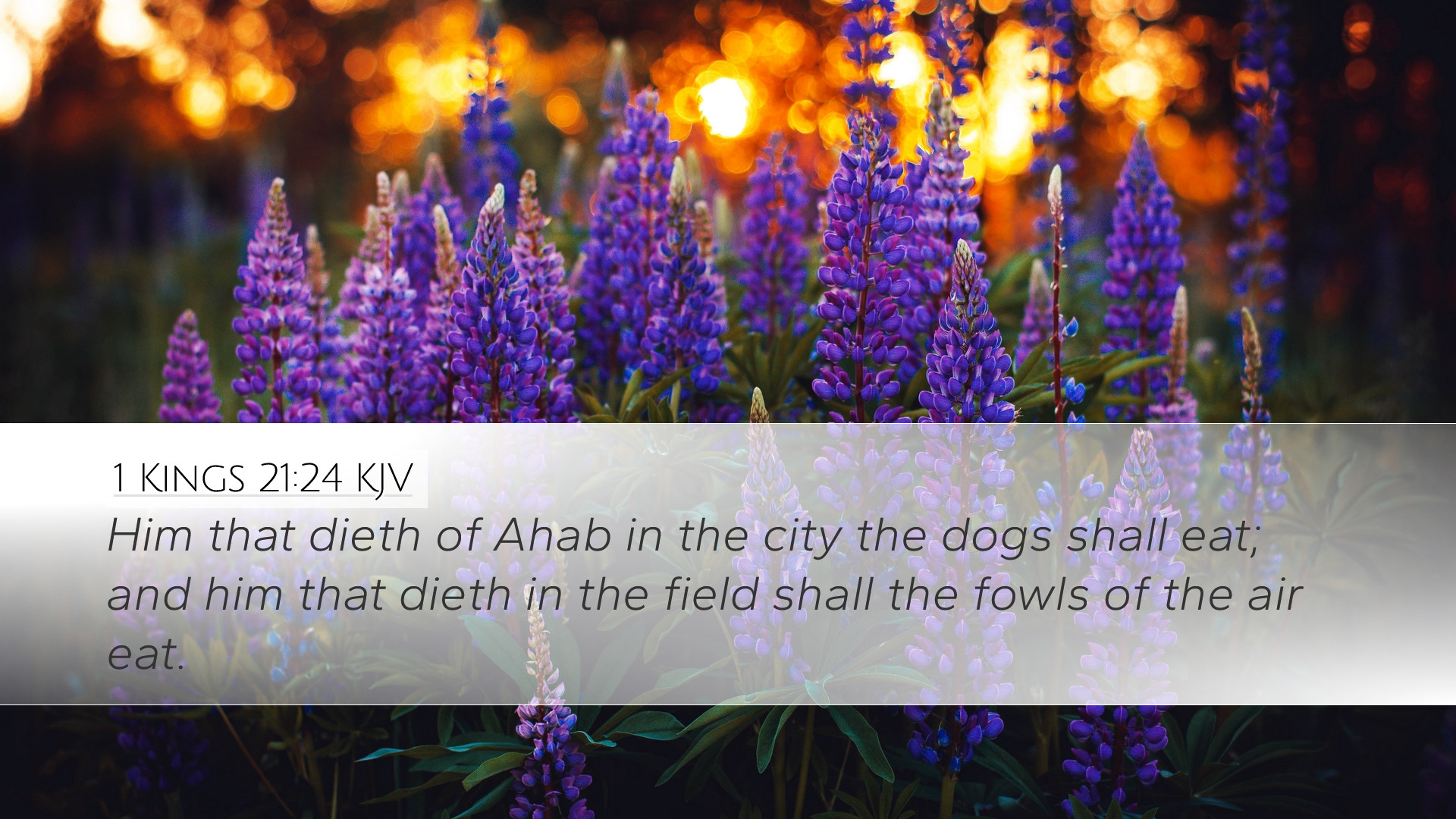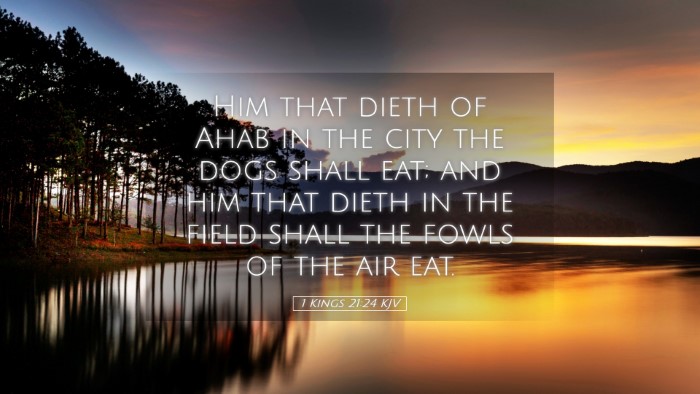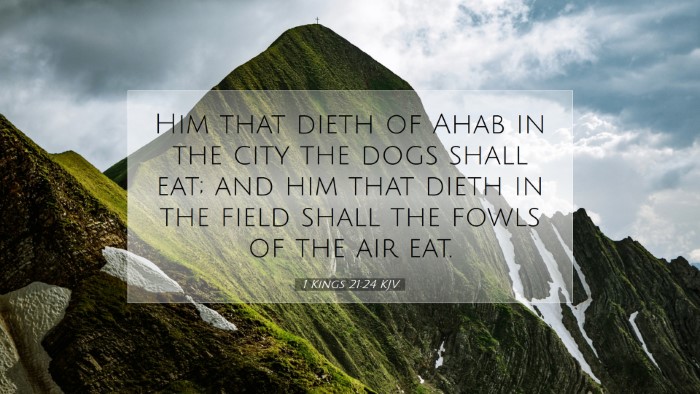Commentary on 1 Kings 21:24
Verse Context: The verse states: "Him that dieth of Ahab in the city the dogs shall eat; and him that dieth in the field shall the fowls of the air eat." This proclamation serves as a stark culmination of God’s judgment upon King Ahab for his grievous sins, particularly concerning his actions against Naboth.
Introduction
1 Kings 21:24 offers a severe warning that reflects God's justice towards those who persist in wickedness. This commentary synthesizes insights from public domain commentaries by Matthew Henry, Albert Barnes, and Adam Clarke to give a comprehensive understanding of the verse and its implications for believers today.
The Sin of Ahab
Matthew Henry's Insights: Henry emphasizes Ahab’s notorious sin of coveting Naboth's vineyard, which leads to his conspiring acts of murder and betrayal. The king's actions spurred a national crisis, provoking the judgment of God against him and his posterity. Ahab's sin is a reminder of the destructive nature of greed and the lengths sinful man can go to fulfill his desires.
Albert Barnes' Observations: Barnes points out that Ahab's death is not just personal but also affects his lineage. The curse that the dogs will eat those who die in the city illustrates the ultimate humiliation and the fate of those deemed unworthy by God. It serves to underline the seriousness of divine justice against those in positions of power who abuse their authority.
Adam Clarke's Commentary: Clarke expands on the prophetic elements in this passage, suggesting that the graphic imagery serves as a supernatural warning. He correlates Ahab's actions with established biblical precedents of divine retribution against kings who stray from God's commandments. Clarke preaches the necessity of obedience and the dire consequences of straying from God’s laws.
The Dogs and the Fowl: Symbolism
This verse's vivid imagery of dogs and vultures eating Ahab’s remains symbolizes the utter disgrace of divine judgment. In ancient Israelite culture, such a fate represented not just a lack of honor in burial but also the complete abandonment of divine favor.
- The Dogs: Significantly, dogs were considered unclean animals in Jewish law. Their involvement in consuming Ahab's remains signifies total disgrace and judgment against him; he would not even receive a proper burial.
- The Fowl: The reference to fowls eating those who died in the fields indicates that Ahab's demise would be public and known, unable to be hidden or buried away from the sight of the community.
Theological Implications
Accountability Before God: This verse exemplifies the principle that leaders are held to a higher standard. God’s judgment upon Ahab is a reminder that no one is above God's law and that failure to act justly will lead to severe repercussions.
God's Sovereignty: The proclamations made by the prophet Elijah illustrate God's ultimate authority. Ahab may have been a powerful king but, in the end, he was subject to God’s will and judgement. This serves to assure believers that God is in control amid human injustice.
Lessons for Today’s Believers
The narrative surrounding 1 Kings 21:24 encourages contemporary believers to reflect on their conduct and the impact of their choices, especially in leadership roles. The following lessons can be drawn:
- Value Integrity: Ahab’s life teaches that the pursuit of self-interest at the expense of others leads to divine judgment. It beckons modern leaders in the church and society to prioritize integrity and righteousness.
- Embrace Divine Justice: The certainty of divine retribution reminds believers of the importance of aligning their lives with God's principles, encouraging them to seek justice and mercy.
- Public Witness: The public nature of Ahab’s demise shows how one’s actions can serve as a testimony or warning to others. Christ’s followers today are called to live lives that reflect God’s truth to those around them.
Conclusion
1 Kings 21:24 serves as a powerful reminder of God’s unwavering justice, the severe repercussions of unchecked sin, and the importance of repentance. By studying this verse through the insights of revered commentators, we glean a deeper understanding of God’s holiness and the seriousness of His covenant with humanity. Leaders and believers alike are called to reflect upon their lives and ensure they walk in righteousness, mindful of the ultimate accountability we have before God.


